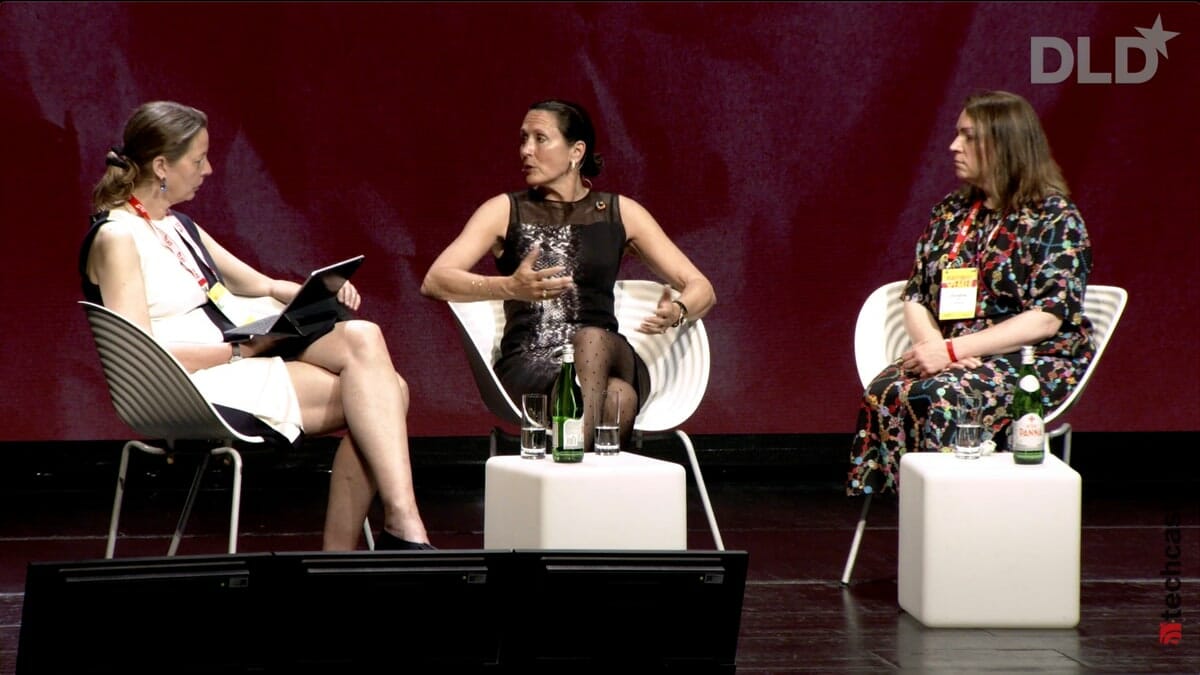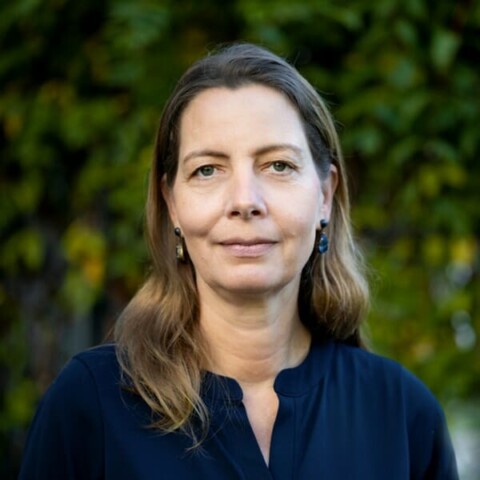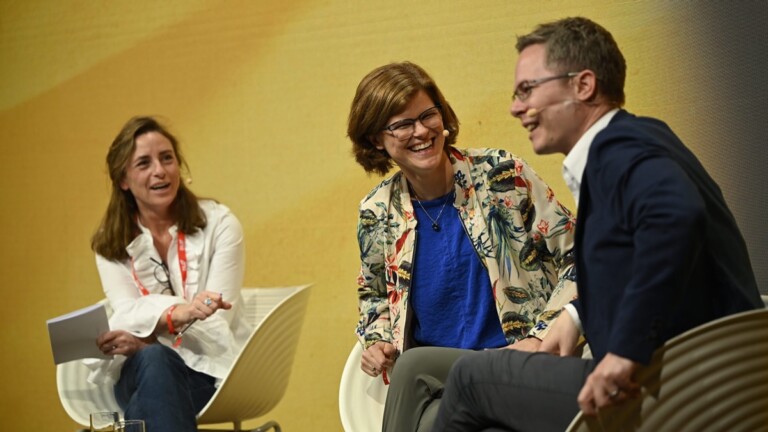Making air travel more sustainable is the core topic of this DLD Munich session with Sandrine Dixson-Declève (Club of Rome), Christina Foerster (Lufthansa Group) and moderator Felicitas von Peter (Active Philanthropy).
Given that global CO2 emissions have almost doubled since 1980, “we can afford one single plane ride per year between Frankfurt and Rome” if we want to keep global warming below 1.5 degrees Celsius, Felicitas von Peter observes.
But this is assuming that planes keep flying with regular fuel.
Lufthansa has set itself the goal of becoming carbon neutral by 2050. “The technology that we have to even cut emissions by 2030 is sustainable alternative fuels, which extract CO2 from the atmosphere”, Christina Foerster – member of the Lufthansa Executive Board – explains.
These kerosene alternatives have powered more than 360,000 flights, according to the International Civil Aviation Organization and Lufthansa sees itself as one of the pioneers in this field.
“We are already the biggest buyer of SAF in Europe”, says Foerster, but price and availability are a challenge. “It’s still very expensive, which tends to be the case with emerging technologies”. And even if Lufthansa bought all sustainable alternative fuels worldwide, “we can fly with this for only one week”, Foerster points out.
Still, she expects Lufthansa to use twice as much SAF as regulations require in five years.
Over time, green travel will change mobility – in aviation and beyond. This is why Sandrine Dixscon-Declève suggests another approach: “I think we will have to change our mobility patterns”, she says – even if this means fewer trips.
That may not be nice, Dixscon-Declève admits, “because the beauty of travel is a cultural element and the exchange is important. But we do not need to have as many flights as we have in Europe.”
Trains could provide a more sustainable alternative, she argues. “We could shift to rail. And we are not investing in rail.” She would like to see Lufthansa diversify into a comprehensive mobility company that gives everyone access to the places they want to visit – without harming the planet.





